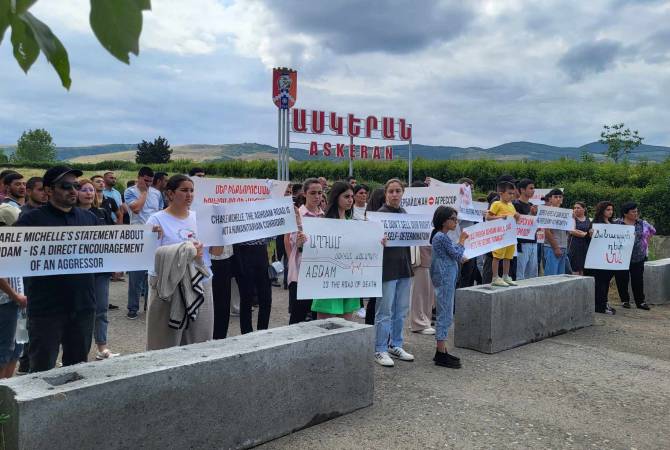
This is the English translation of a Turkish-language article that was originally published by AVİM on 4 August 2023.
Disagreements between Azerbaijan and Armenia in the final peace agreement process that started after the 2020 Karabakh war have still not been fully resolved.
In the meetings between the two countries at various levels in Brussels and Moscow, the most important topics on the agenda have been the determination of the borderline and the transportation route of Azerbaijan to Nakhichevan in accordance with the 9 November declaration. Although there have been statements from the EU and Russia (who have hosted these negotiations for 2 years) that they are close to a final solution, the statements from the two countries indicate that the thorny issues have not been eliminated yet. The unwillingness of the Armenian side concerning the opening of the Zangezur road, which will provide access from Baku to Nakhichevan, and the attempt to impose certain demands on Azerbaijan for the rights of the Karabakh Armenians in a fait accompli manner, are the main factors triggering tensions.
As can be remembered, the corridor extending from Armenia to Khankendi, known as the Lachin corridor, was reconstructed and reopened by Azerbaijan in August 2022 in accordance with the provision in the Article 6, paragraph 2 of the November 9 declaration:
“With the agreement of the parties, within the next three years, a plan will be determined for the construction of a new route along the Lachin corridor, which will ensure communication between Nagorno-Karabakh and Armenia, and for the subsequent redeployment of the Russian Peacekeeping Contingent to protect it."[1]
A short time after the opening of the road, it was observed that Armenia displayed an uncompromising attitude in the negotiations concerning the Zangezur road and even created some difficulties regarding the use of the newly opened Lachin road. Subsequently, Azerbaijani officials announced that they detected illegal military transportation to Khankendi from Armenia via unpaved roads connected to the old route.[2] Armenia, on the other hand, denied these allegations and stated that those individuals were there as officials of the so-called government in Karabakh. However, the distance of the area where the passing vehicles are located from Khankendi has been considered by Azerbaijan as a violation of its sovereignty rights. Consequently, it was announced that a decision was made to establish a customs checkpoint on the Lachin road using sovereign state rights at the border with Armenia.[3]
It can be observed that with the starting of border surveillance that Armenia has placed greater emphasis on the claims in the international arena that access to Khankendi has been blocked and that the Armenian community living there is at the edge of a humanitarian crisis. Similar claims were previously raised by Armenia during peaceful protests organized by Azerbaijani environmental activists on the Lachin road, accusing Azerbaijan of condemning Karabakh Armenians to starvation. However, Azerbaijani officials continue to state that there has been no blockade on transportations since last year.
Indeed, Azerbaijani President Ilham Aliyev, in an interview with EuroNews news agency on August 1, responded to the reporter's question about allegations of blockade on the Lachin corridor by stating that Azerbaijan has not prevented any passage except for illegal crossings.[4] President Aliyev conveyed that the Red Cross aid vehicles, which were claimed to be blocked, were being used for smuggling purposes, and that items such as tobacco, cellphones, and fuel were found in the intercepted vehicles. From previously reported news, it can be understood that the Red Cross organization did not deny the mentioned incident and furthermore, it appears that they terminated the employment of personnel attempting to pass with the mentioned vehicles[5]. Azerbaijan's exercise of its sovereignty rights in combating smuggling, an issue also approached with sensitivity by the international community, is entirely understandable. Moreover, considering Armenia's commitments to the Cooperation and Enhanced Partnership Agreement with the EU, which was signed in 2018 and addresses smuggling[6], it is expected that Armenia should support Azerbaijan's efforts against this illicit traffic directed from its own borders to Azerbaijan. However, the Armenian side, at best aware of its negligent behavior, is attempting to portray Azerbaijan's efforts within its sovereign borders as an act of "ethnic cleansing".
At this very point, it is worthwhile to focus on the proposal put forth by Azerbaijan. Azerbaijani officials emphasize that the Askeran road, which can be used via Aghdam to reach Khankendi, could be employed for urgent needs such as food, medicine, and healthcare supplies, in line with humanitarian concerns. Although the Lachin road is the sole route connecting Armenia to Karabakh, it is not the only way to access the region. The Askeran-Khojaly road through Aghdam can also provide access to Khankendi. The proposal by Azerbaijan received support from EU High Representative Joseph Borrell as well. He indicated that if facing a humanitarian crisis, this route could also be utilized. However, initially, Armenians in Khankendi opposed this proposal. Subsequently, a group of protesters, mainly composed of young Karabakh Armenians, erected physical barriers on the Askeran road, declaring that they would not allow any passage from the Azerbaijani side.[7]
These protests cast doubt on the claims of a humanitarian crisis among Armenians in Karabakh. The fact that the possibility of eliminating the lack of food and medicine through Azerbaijan can be denied so easily demonstrates that the claim of being under a blockade is unfounded. On the other hand, it is consistently observed that the Azerbaijani government regards the Karabakh Armenians as its own citizens. Azerbaijan's offer to provide assistance to its own citizens within its territory is met with a hostile response from the so-called administration in Karabakh, which directly indicates the source of the unyielding stance in the peace process. President Aliyev stated in an interview with Euronews that peace between peoples is hindered by individuals like the so-called leaders in Karabakh, and that people should not blindly follow them[8].
The disinformation campaign that spreads the allegations of "ethnic cleansing” against Armenians on national and international platforms in the context of the Lachin corridor issue is fundamentally related to the topic of Karabakh Armenians' rights, which Armenia frequently raises within the framework of the peace agreement. During negotiations, Armenia asserts that it will recognize Azerbaijan's territorial integrity only when the rights of Karabakh Armenians are guaranteed, and it continues to search for a way that will provide official status to the Karabakh Armenians. However, this stance contradicts the principle of respecting Azerbaijan's sovereignty and territorial integrity. By maintaining this stance, Armenia is pushing the final peace agreement process towards an unresolved status, a tactic employed numerous times throughout Armenia's foreign policy history. It thus becomes evident that Armenia aims to revert the status of the Karabakh issue into a “frozen conflict” and intends to provide a lifeline to the so-called leadership in Khankendi.
[1] Tutku Dilaver, “Azerbaycan Karabağ’a Giden Yeni Yolu Açıyor,” AVİM, 26 August 2022, 2023, https://avim.org.tr/tr/Analiz/AZERBAYCAN-KARABAG-A-GIDEN-YENI-YOLU-ACIYOR
[2] “Azerbaycan askeri, Karabağ'da Ermeni silah konvoyunu yakaladı, çatışma çıktı,” Aydınlık, 5 March 2023, https://www.aydinlik.com.tr/haber/azerbaycan-askeri-karabagda-ermeni-silah-konvoyunu-yakaladi-catisma-cikti-azerbaycan-askerlerleri-ile-ermeni-gucleri-nicin-catisti-372649
[3] Ruslan Rehimov, “Laçın Koridoru'nun başlangıcındaki sınır kontrol noktasına Azerbaycan bayrağı dikildi,” Anadolu Agency, 26 April 2023, https://www.aa.com.tr/tr/dunya/lacin-koridorunun-baslangicindaki-sinir-kontrol-noktasina-azerbaycan-bayragi-dikildi/2881631
[4] Anelise Borges, “Azerbaycan ve Ermenistan arasında barış mümkün mü? Aliyev ve Paşinyan yanıtladı,” EuroNews, 1 August 2023, https://tr.euronews.com/2023/08/01/azerbaycan-ve-ermenistan-arasinda-baris-mumkun-mu-aliyev-ve-pasinyan-yanitladi.
[5] “Azerbaycan, Laçın koridorunu geçici kapattı, Ermenistan uluslararası topluma çağrı yaptı,” EuroNews, 11 July 2023, https://tr.euronews.com/2023/07/11/azerbaycan-lacin-koridorunu-geci-kapat-ermenistan-uluslararasi-topluma-cagri-yapti.
[6] “Article 16,” in COMPREHENSIVE AND ENHANCED PARTNERSHIP AGREEMENT between the European Union and the European Atomic Energy Community and their Member States, of the one part, and the Republic of Armenia, of the other part, Official Journal of the European Union, (2018): 12.
[7] “EU Again Backs Baku, This Time Touting Azerbaijan’s Supply Line via Aghdam,” Asbarez, 19 July 2023, https://www.asbarez.com/eu-again-backs-baku-this-time-touting-azerbaijans-supply-line-via-aghdam/.
[8] Anelise Borges, “Azerbaycan ve Ermenistan arasında barış mümkün mü? Aliyev ve Paşinyan yanıtladı,” EuroNews, 1 August 2023, https://tr.euronews.com/2023/08/01/azerbaycan-ve-ermenistan-arasinda-baris-mumkun-mu-aliyev-ve-pasinyan-yanitladi.
© 2009-2025 Center for Eurasian Studies (AVİM) All Rights Reserved
No comments yet.
-
1.INTERNATIONAL SYMPOSIUM ON TURKISH-ARMENIAN RELATIONS AND THE GREAT POWERS
AVİM 03.05.2012 -
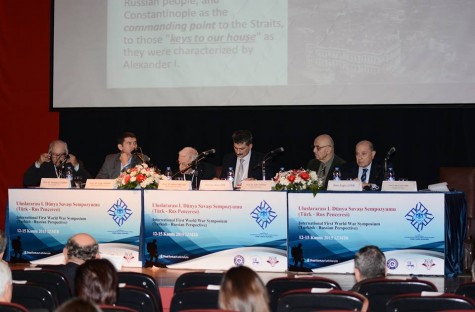 INTERNATIONAL FIRST WORLD WAR SYMPOSIUM (TURKISH-RUSSIAN PERSPECTIVE) HELD ON 12-15 NOVEMBER 2015
INTERNATIONAL FIRST WORLD WAR SYMPOSIUM (TURKISH-RUSSIAN PERSPECTIVE) HELD ON 12-15 NOVEMBER 2015
AVİM 25.11.2015 -
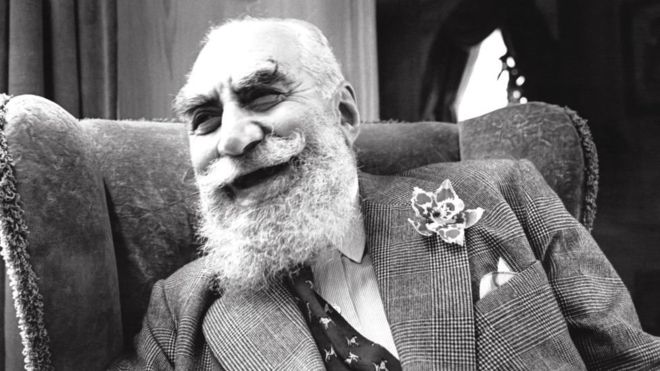 COMMEMORATIVE STAMPS FOR GULBENKIAN
COMMEMORATIVE STAMPS FOR GULBENKIAN
AVİM 19.04.2019 -
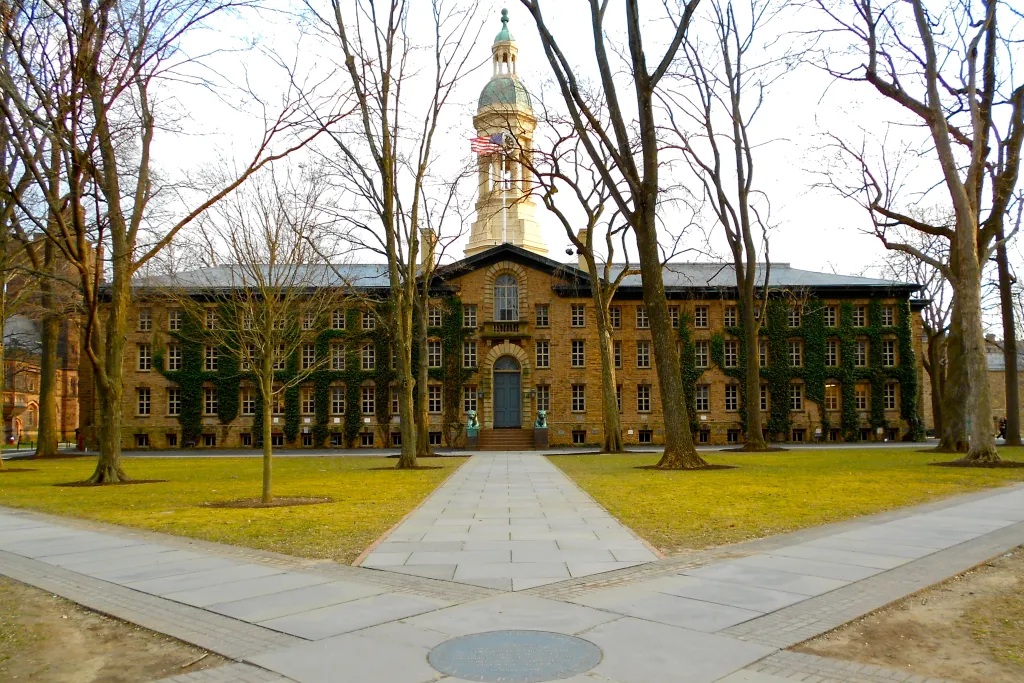 A DECEITFUL ATTEMPT TO TARNISH ATATÜRK’S LEGACY AT PRINCETON UNIVERSITY
A DECEITFUL ATTEMPT TO TARNISH ATATÜRK’S LEGACY AT PRINCETON UNIVERSITY
AVİM 09.10.2025 -
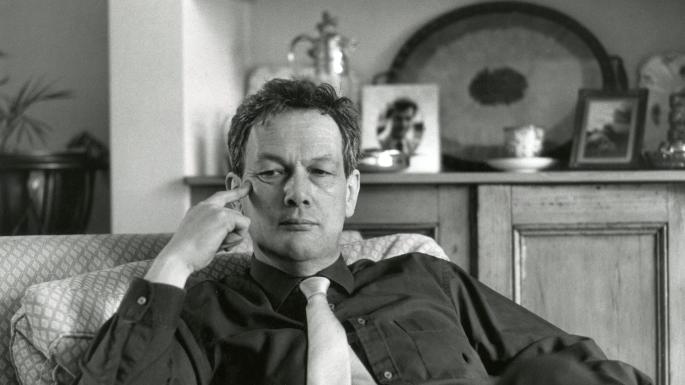 BIASED DISPARAGEMENT OF THE LATE NORMAN STONE BY TWO BRITISH DAILIES
BIASED DISPARAGEMENT OF THE LATE NORMAN STONE BY TWO BRITISH DAILIES
AVİM 16.07.2019
-
THE FRENCH LAW: THE FIRST STAGE
Ömer Engin LÜTEM 25.12.2011 -
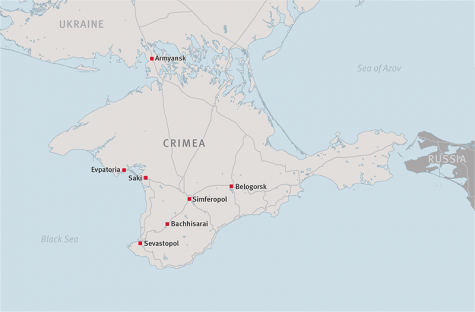 REPORT SUMMARY: HUMAN RIGHTS WATCH REPORT RIGHTS IN RETREAT: ABUSES IN CRIMEA
REPORT SUMMARY: HUMAN RIGHTS WATCH REPORT RIGHTS IN RETREAT: ABUSES IN CRIMEA
Maryna SHEVTSOVA 26.11.2014 -
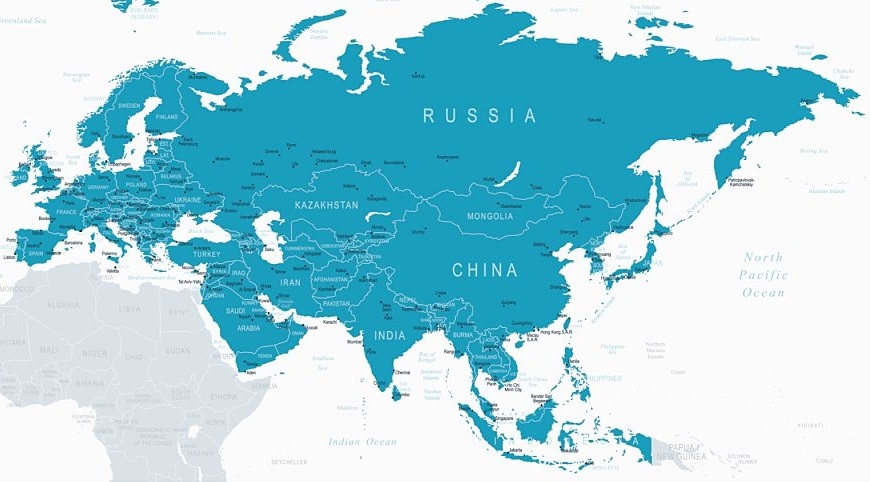 TURKEY’S INTERESTS AND CONSTRUCTIVE EURASIANISM
TURKEY’S INTERESTS AND CONSTRUCTIVE EURASIANISM
Mehmet Oğuzhan TULUN-Teoman Ertuğrul TULUN 05.05.2022 -
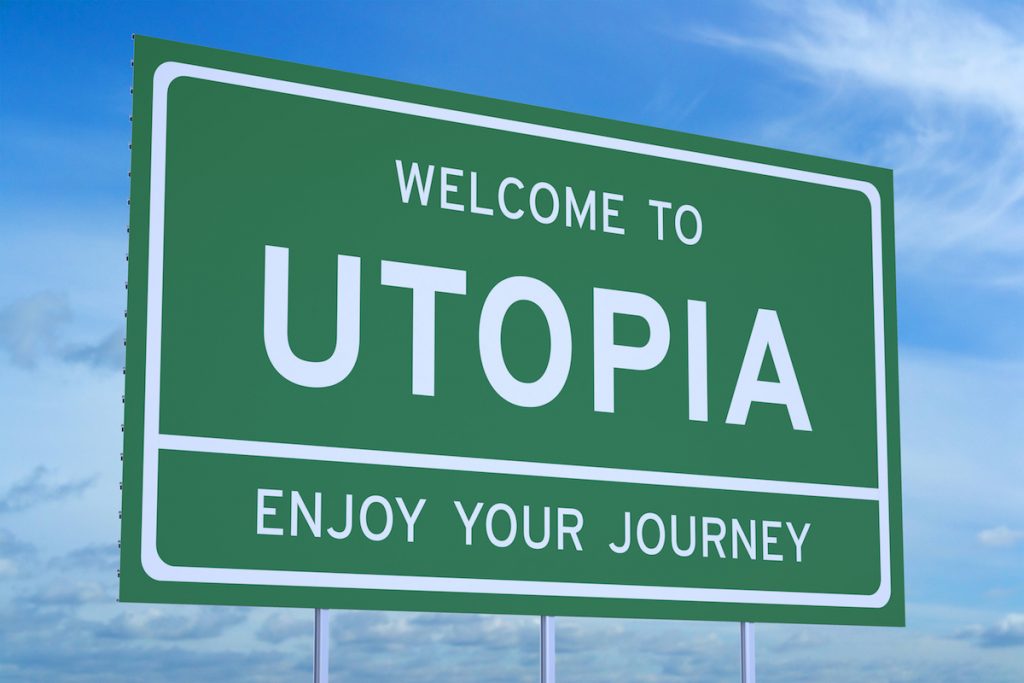 PASHINYAN'S STATEMENTS REGARDING 'WESTERN ARMENIA' AND PUBLIC OPINION REALITIES
PASHINYAN'S STATEMENTS REGARDING 'WESTERN ARMENIA' AND PUBLIC OPINION REALITIES
Tuğçe TECİMER - Selenay Erva YALÇIN 13.06.2025 -
FRANCE AND THE ARMENIAN GENOCIDE ALLEGATIONS
Ömer Engin LÜTEM 17.01.2011
-
25.01.2016
THE ARMENIAN QUESTION - BASIC KNOWLEDGE AND DOCUMENTATION -
12.06.2024
THE TRUTH WILL OUT -
27.03.2023
RADİKAL ERMENİ UNSURLARCA GERÇEKLEŞTİRİLEN MEZALİMLER VE VANDALİZM -
17.03.2023
PATRIOTISM PERVERTED -
23.02.2023
MEN ARE LIKE THAT -
03.02.2023
BAKÜ-TİFLİS-CEYHAN BORU HATTININ YAŞANAN TARİHİ -
16.12.2022
INTERNATIONAL SCHOLARS ON THE EVENTS OF 1915 -
07.12.2022
FAKE PHOTOS AND THE ARMENIAN PROPAGANDA -
07.12.2022
ERMENİ PROPAGANDASI VE SAHTE RESİMLER -
01.01.2022
A Letter From Japan - Strategically Mum: The Silence of the Armenians -
01.01.2022
Japonya'dan Bir Mektup - Stratejik Suskunluk: Ermenilerin Sessizliği -
03.06.2020
Anastas Mikoyan: Confessions of an Armenian Bolshevik -
08.04.2020
Sovyet Sonrası Ukrayna’da Devlet, Toplum ve Siyaset - Değişen Dinamikler, Dönüşen Kimlikler -
12.06.2018
Ermeni Sorunuyla İlgili İngiliz Belgeleri (1912-1923) - British Documents on Armenian Question (1912-1923) -
02.12.2016
Turkish-Russian Academics: A Historical Study on the Caucasus -
01.07.2016
Gürcistan'daki Müslüman Topluluklar: Azınlık Hakları, Kimlik, Siyaset -
10.03.2016
Armenian Diaspora: Diaspora, State and the Imagination of the Republic of Armenia -
24.01.2016
ERMENİ SORUNU - TEMEL BİLGİ VE BELGELER (2. BASKI)
-
AVİM Conference Hall 24.01.2023
CONFERENCE TITLED “HUNGARY’S PERSPECTIVES ON THE TURKIC WORLD"









